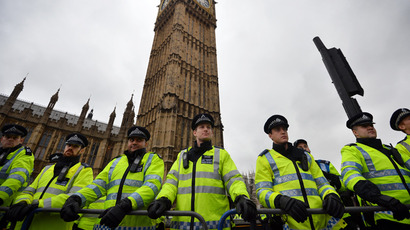Lobbying laws: Charities ordered to monitor employee’s social media

Charities must record when their employees use social media to campaign or comment on political issues, the Electoral Commission has said, adding that it would monitor social media activity to confirm posts comply with lobbying laws.
Speaking at the annual Charity Law Association conference last week, the Electoral Commission’s head of policy, Kate Engles, said charities should consider whether campaigns could be classed as “political” even if they do not endorse a party or candidate.
“The activity and spending can be covered if it doesn’t specifically mention parties or groups of candidates. That’s to cover where people are trying to get around the rules and say they are doing something else,” she said.
While charities may be non-partisan, the charity commission says social media activity, particularly relating to political campaigns, could “reasonably be regarded as intended to influence voters” to vote in a particular way at a local or general election.
Therefore, the Commission argues the costs incurred in creating and distributing social media should be accounted for by the charities themselves.
“If the organization is encouraging its staff to do that, then they need to keep a record of the fact that they have told their staff on X number of occasions that we would like you to post a tweet about the charity’s campaign,” a spokesperson for the Electoral Commission told Civil Society News.
Under the Transparency of Lobbying, Non Party Campaigning and Trade Union Administration Act 2014, known as the “lobbying bill”, charities that spend more than £20,000 per annum in England, or over £10,000 anywhere else in the UK, are required to register with the Electoral Commission.
However, a spokesperson for the Commission told RT that only social media posts conducted through official charity channels, as part of a campaign, would be accounted for under the lobbying guidelines.
“This is not about counting the number of tweets that are posted or whether followers are being asked to share tweets or Facebook posts about a campaign. The assessment is about the time spent by a member of staff working on regulated campaign activities,” the spokesperson said, adding that tweets posted on personal accounts outside of working hours were not included.
“If charities are planning a large scale, multi media campaign ahead of the election, that can reasonably be regarded as intended to influence voters; then it’s likely that the costs of running that campaign via social media including a reasonable assessment of staff time producing content, will need to be accounted for.”
Earlier this year, the UK based charity Oxfam was accused of politicking after it published posters criticizing the government’s ongoing austerity program, sporting a headline which read: “Lifting the lid on austerity Britain reveals a perfect storm – and it’s forcing more and more people into poverty”.
The anti-poverty campaign, which also called on people to lobby their MPs to tackle food poverty, was slammed by a number of Conservative MPs, including Conor Burns, who told The Telegraph he had reported the organization to the Charity Commission.














